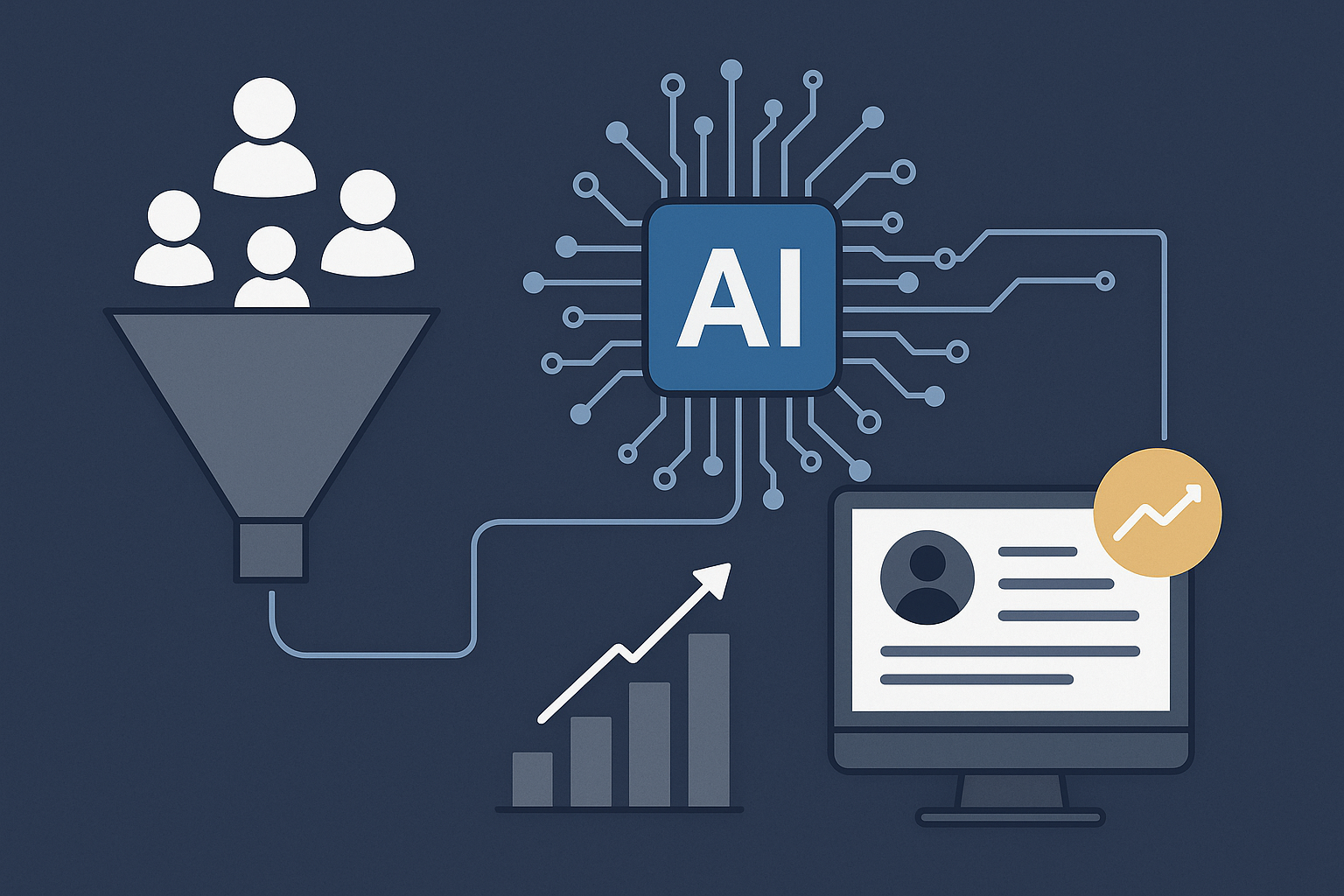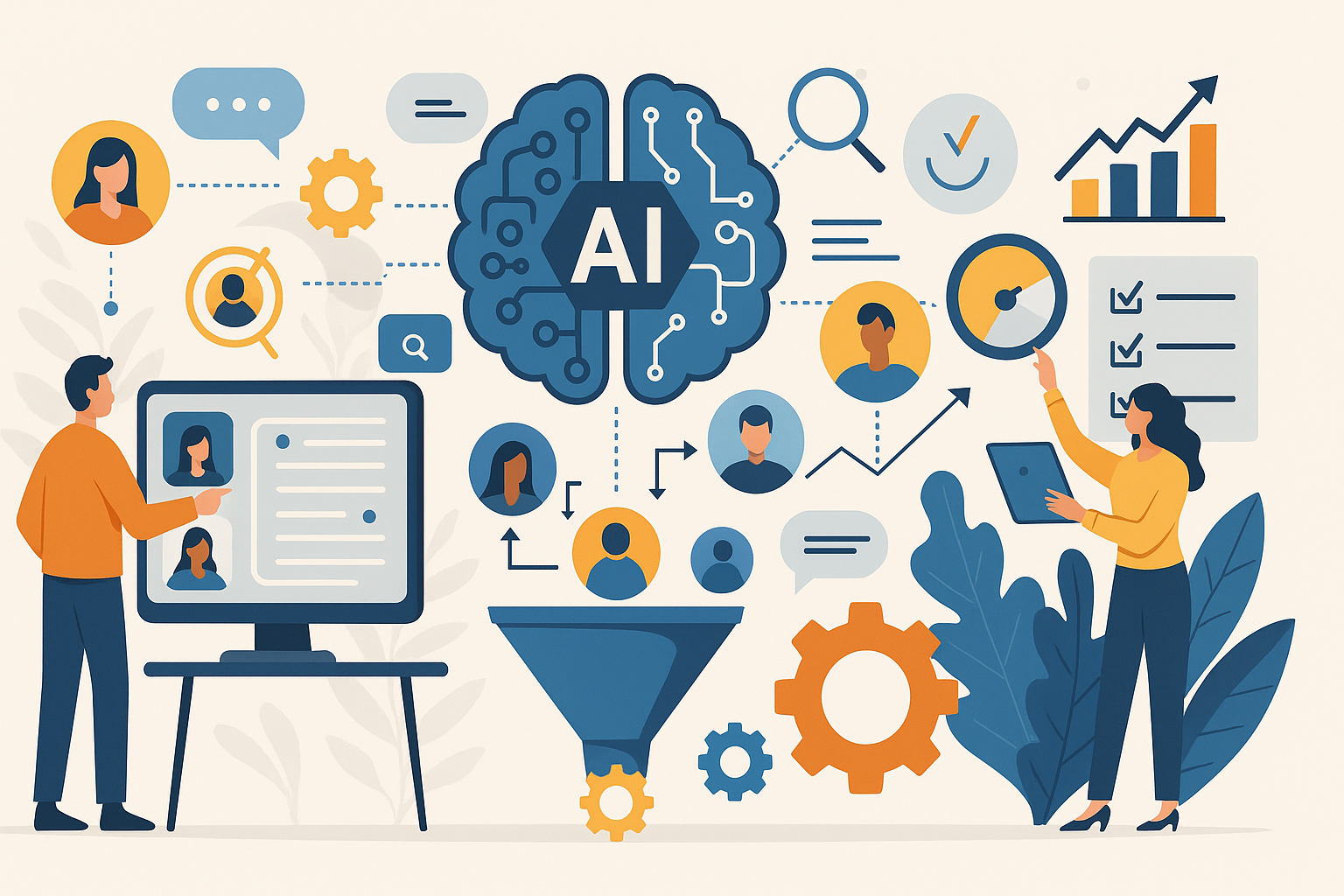What's in this article?
In an era where technology drives sales innovation, leveraging artificial intelligence (AI) has become more than just a competitive advantage; it’s a necessity. AI empowers sales teams to convert leads more effectively by accurately targeting prospects and streamlining processes. This guide will explore how AI can significantly optimize lead conversion rates and why it’s essential for businesses today.
The Power of AI in Lead Management
AI Transforming Lead Prioritization
Lead prioritization is crucial for sales success. Traditionally, this was often based on intuition or rudimentary scoring methods. However, AI enables a data-driven approach, analyzing vast datasets to predict which leads are most likely to convert. By employing AI algorithms, businesses can score leads based on behavioral data and historical interactions, focusing efforts on high-value prospects rather than spreading resources thinly across all leads.
Automating Lead Assignment
AI excels in automating lead distribution, matching leads to the most suitable sales agents based on various factors such as past performance and client preferences. This ensures that leads are handled promptly and by the right person, increasing the likelihood of conversion by offering a personalized customer experience. Furthermore, automating this process frees up time for sales teams to concentrate on nurturing relationships rather than administrative tasks.
Implementing AI for Enhanced Conversion Rates
Selecting the Right AI Tools
The effectiveness of AI in your lead management processes hinges on choosing the right tool. Platforms like ProPair offer AI solutions tailored to predictive scoring and lead distribution that integrate seamlessly with existing customer relationship management (CRM) systems. These tools enhance CRM data without necessitating a complete overhaul.
Best Practices for AI Integration
- Seamless CRM Integration: Ensure that your AI tools communicate effectively with your current CRM systems. This enables streamlined data flow and a comprehensive view of customer interactions.
- Custom Data Filters: Utilize AI’s ability to customize data filters, aligning lead scoring with your specific business metrics such as engagement frequency and lead origin.
Measuring AI’s Impact on Conversion Rates
Key Performance Metrics
To gauge the impact of AI on lead conversions, tracking key performance indicators (KPIs) such as lead response time, conversion rates, and sales cycle duration is essential. AI simplifies this process by providing detailed analytics that highlight areas for improvement and success.
Continuous Learning and Improvement
AI systems thrive on data and continuously learn from new inputs. By regularly updating algorithms and refining predictive models, AI becomes increasingly accurate over time, further enhancing lead conversion rates. This adaptive approach ensures that your sales strategies remain relevant and effective.
Actionable Insights
AI is no longer a futuristic concept but a present-day solution driving tangible results in lead management. As businesses strive to stay ahead, integrating AI in sales processes is a straightforward path to optimizing lead conversion rates. By prioritizing leads intelligently and automating labor-intensive tasks, sales teams are better equipped to focus on closing deals.
- Discover ProPair’s AI Solutions for Lead Management: Enhance your lead handling today by integrating AI with ProPair’s innovative solutions.
FAQ
How does AI improve lead management?
AI enhances lead management by analyzing large datasets to predict lead conversion probability and automating lead distribution to optimize sales efforts.
What are the benefits of AI in sales?
With AI, sales teams can enjoy improved efficiency through automated processes, better lead qualification, and personalization, resulting in higher conversion rates.
How difficult is it to integrate AI into current systems?
Integrating AI into existing systems like CRMs can be seamless with platforms designed for compatibility, eliminating the need for major infrastructure changes.
Can AI help in personalizing customer interactions?
Yes, AI can analyze customer data in real time to customize interactions, leading to a more personalized and engaging customer experience.
What metrics help measure AI success in sales?
Key metrics include lead conversion rates, speed to lead response, customer retention rates, and overall sales growth.



